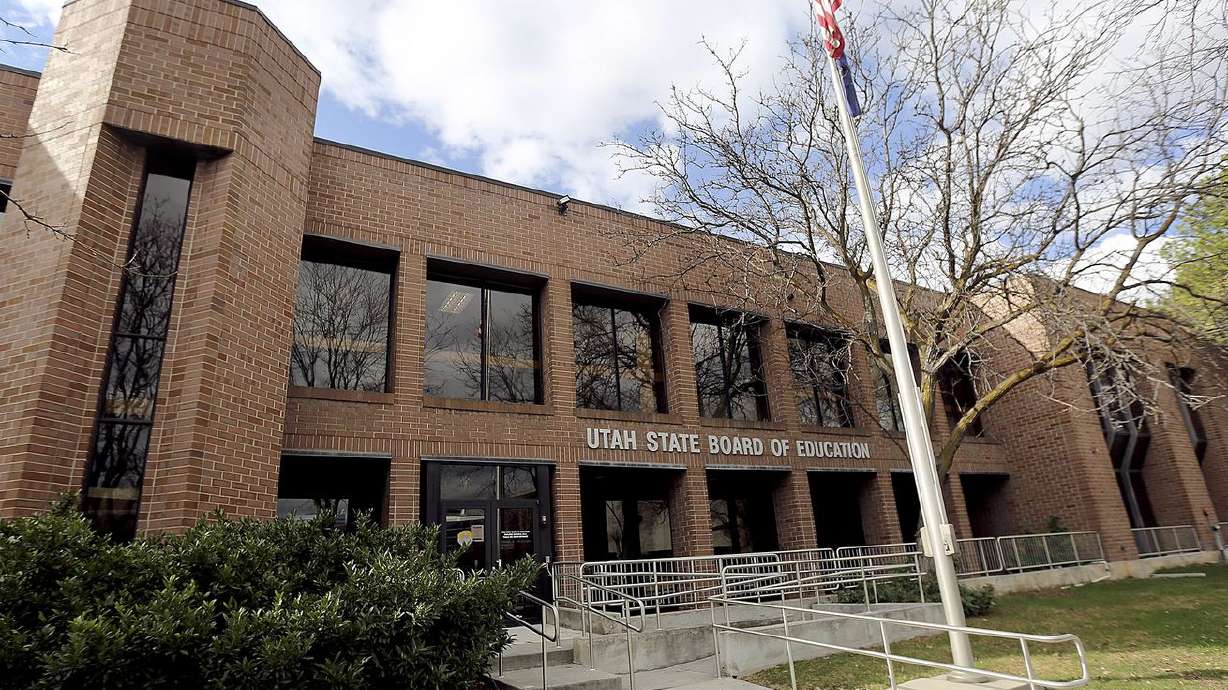Estimated read time: 4-5 minutes
This archived news story is available only for your personal, non-commercial use. Information in the story may be outdated or superseded by additional information. Reading or replaying the story in its archived form does not constitute a republication of the story.
SALT LAKE CITY — Two groups, including the state's largest teachers association, have asked the Utah State Board of Education to hold a public hearing on an administrative rule that spells out what Utah schools cannot teach about diversity, equity and inclusion.
The Utah Education Association and Academic Integrity Movement requested a hearing on the rule R277-328, titled Educational Equity in Schools, which is based on resolutions passed by the Utah Legislature that encouraged the board to ban the teaching of "harmful" concepts.
"We absolutely support the need for educators to have diversity and equity training but question if this rule is the best way to make that happen," said UEA President Heidi Matthews on Thursday.
UEA also wants to raise concerns about portions of the rule that include specific lines of resolutions passed by state lawmakers in May — one by the Utah Senate and another in the Utah House of Representatives.
Academic Integrity Movement representatives did not immediately respond to a request for comment on why the organization sought a public hearing on the administrative rule.
The board received a sufficient number of requests to meet the threshold for conducting the hearing. It will be held on July 22 at 4 p.m. at the board's offices at 250 E. 500 South and will also be online.
On June 4, the state school board approved the administrative rule after four hours of debate and considering nearly 30 amendments. The rule also establishes training protocols for educators who teach the subject matter.
Related:
The board's action came on the heels of Utah lawmakers passing resolutions in May that encouraged the board to ban the teaching of "harmful" concepts, joining other state legislatures taking various action against the teaching of critical race theory. Lawmakers called themselves into special session to address instruction of critical race theory and a resolution in support of the Second Amendment.
The rule passed by the school board mirrors the resolutions passed during the Utah Legislature's extraordinary session. However, neither the legislative resolutions nor the administrative rule uses the words critical race theory or critical race theory concepts, although both legislative bills are titled "Resolution on Critical Race Theory in Public Education."
The board rule prohibits instruction or professional training by a school district or charter school "that promotes or endorses that a student or educator's sex, race, religion, sexual orientation, gender identity or membership in any other protected class is inherently superior or inferior to another sex, race, religion, sexual orientation, gender identity or any other protected class."
It also precludes instruction that "a student or educator bears responsibility for the past actions of individuals from the same sex, race, religion, sexual orientation, gender identity or any other protected class as the student or educator."
Instruction that a student or educator's sex, race, religion, sexual orientation, gender identity or membership in any other protected class determines the content of their character — including values, morals or personal ethics — is also not permissible.
However, the rule does not prohibit or ban discussions of events, ideas, attitudes, beliefs or concepts "from the general sharing and participation in the marketplace of ideas fostered in a learning environment."
Critical race theory is not part of the state board's social studies standards for public schools, but some parents who have addressed school boards say their children have been in classrooms where the concepts have been taught.
The State School Board establishes core standards but curriculum decisions are left to local districts or charter schools.
Critical race theory recognizes "that race is not biologically real but is socially constructed and socially significant," according to the American Bar Association.
The theory also acknowledges "that racism is a normal feature of society and is embedded within systems and institutions, like the legal system, that replicates racial inequality. This dismisses the idea that racist incidents are aberrations but instead are manifestations of structural and systemic racism," according to the bar association.










